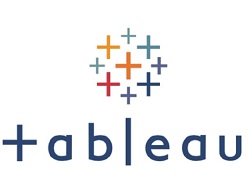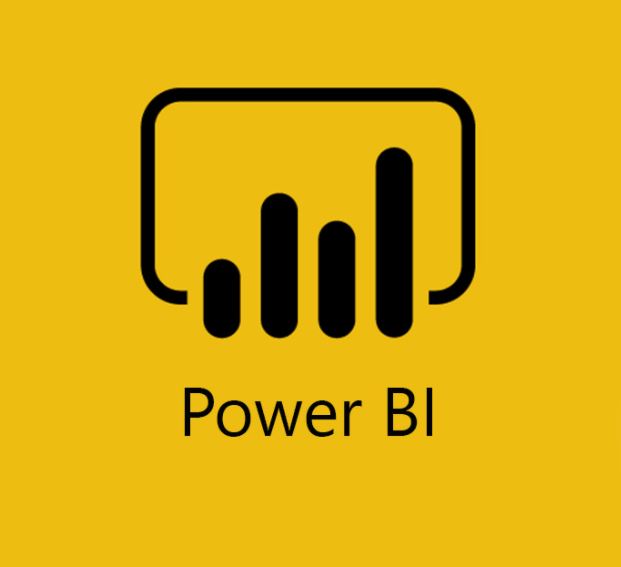Magento 2 Canonical URLs: Best Practices for eCommerce SEO
To ensure long-term success of your online store, it is imperative to optimise it. This will not only help attract and retain customers, but also improve your store’s organic ranking. Without optimisation, the store’s ranking among the search engine result pages (SERPs) will go down, leading to reduction in organic traffic. Ultimately, the fall in traffic will impact your store’s sales and force you to spend more on paid marketing strategies such as Google Ads.
When it comes to optimisation, store owners have multiple options. For example, uploading images in WebP format, making the website mobile responsiveness, and increasing the loading speed are all part of website optimisation. However, our focus is on canonical URLs, a key part of the search engine optimisation (SEO) strategy. In this article, we will discuss everything there is to know about Magento 2 Canonical URL, including how to set it up and related best practices.
What is a Magento 2 Canonical URL?
Suppose you have 3 Magento webpages that have duplicate or highly similar content. As you may know, duplicate content impacts your organic ranking. Search engines may mark the pages as spam and penalise your website. To avoid this, search engines suggest implementing a Magento 2 canonical URL. This URL simply tells the search engine which URL you want to appear in the SERPs. It allows you to retain other webpages with duplicate/highly similar content without fear of any penalty.
Reasons Behind Duplicate Content
Before moving forward, it is pertinent to review the various reasons contributing to duplicate content. They include:
-
Multiple URLs Pointing to the Same Product
It is quite likely that the same product appears despite configuring different sorting options or filters. While the product and its description stay the same, the URL changes. This is one of the most common reasons behind duplicate content.
-
Regional Variants
If your store is serving different geographical locations, you may have set up different webpages for each region. For example, your store is based in France. The target audience is US, UK, and the rest of Europe. It makes no sense to have separate content for UK and US websites as both are English speaking countries. Thus, in this scenario, you will have the same content but for two different webpages.
-
HTTP/HTTPS
Nowadays, it is common for websites to have two variants – one with HTTP and one with HTTPS. For the everyday user, this difference is not noticeable. However, for the search engines, HTTP and HTTPS versions are two different webpages. Therefore, having the same content means duplicate content.
-
Miscellaneous
Other reasons your website may have duplicate or highly similar content is because you forgot to disable theme or test pages before going live.
When is Content Duplication a Problem?
Remember, not all duplicate content is an issue at least in the context of eCommerce. The reason is that despite having different products, the description may be same. If not this, then you may have a text snippet appearing on every or multiple pages. As long as the duplicate content is less than 100 words, you don’t have to worry about a penalty or setting up a canonical URL.
Best Practices for Magento 2 Canonical URL
-
Consistency
The first recommendation is to always use a consistent URL structure across your Magento 2 website. This makes it easier to manage canonical URLs. When creating a URL, don’t forget to include the primary keyword. This will boost your SEO strategy. However, only add the keyword if it appears naturally. Otherwise, it will be a case of keyword stuffing.
-
Don’t Use Robots.txt File for Canonical URL Purposes
Secondly, don’t use a robots.txt file for setting up a canonical URL. The reason is quite simple. The robots.txt file is used for managing crawl directives. It tells the crawler which section of the website to index. It helps locking access to pages that are irrelevant from the user experience or SEO perspective. For example, there’s no point in indexing internal search result pages or admin login page.
-
Use them Carefully
As said earlier, not every duplicate content will lead to a penalty. Only set up the canonical URL when it is clear that the content meets the duplicate/highly similar criterion. Overusing the canonical URLs can confuse web crawlers, making it challenging to block webpages and rank the website.
-
Link to the Canonical URL When Interlinking
When adding internal links or a backlink, always link to the canonical URL. This ensures that the link equity is transferred to the preferred URL. If you add internal or backlinks to multiple pages, the link equity is divided among the pages. It would make it challenging to rank the preferred webpage.
-
Canonicalize the Homepage
The homepage is one webpage that has multiple variations. For example, one will appear with ‘www’, while the other without it. Similarly, you may have a version with a ‘/’ appearing at the end, and one without it. Ensure to add a canonical URL to the homepage and that all links point to the canonicalized version.
-
Monitor Canonical URLs
After adding canonical URLs, monitor their performance. You can use the Google Search Console tool for this purpose or any other SEO tool. It will help you identify if there are any issues with the canonical URLs.
-
Invest in an Extension
One of the top reasons merchants prefer Magento 2 is the customisability. Through third-party extensions, you can add advanced features and more. Speaking of extensions, you can use a Magento 2 Canonical URL extension to manage canonical URLs effectively. These extensions allow you to add canonical URLs to product, category, and CMS pages. Also, you can manage all canonical URLs through a single interface.
Setting up a Canonical URL in Magento 2
-
Login to the Magento 2 Admin Panel 🡪 Stores 🡪 Configuration.
-
In the Catalog section, select Catalog again to view configuration settings.
-
In the Search Engine Optimisation section, go to ‘Use Canonical Link Meta Tag for Products’. Set the option to ‘Yes’. It will add a canonical tag to all product pages.
To enable canonical URL for category pages, find ‘Use Canonical Link Meta Tag for Categories’ in the Search Engine Optimisation section and follow the same steps as above. Don’t forget to click on ‘Save Config’ and clearing the cache to reflect the changes.
Final Thoughts on Magento 2 Canonical URL
This concludes our article on the best practices for Magento 2 canonical URL and how to configure them. Remember, avoid overusing the canonical URLs. Instead, use them only when you are 100% sure.
 Aarav
19th February 2026
Aarav
19th February 2026
Very helpful article on Magento 2 canonical URLs. It clearly explains how to avoid duplicate content and improve SEO performance for eCommerce stores. The best practices shared here are practical and easy to understand. Thanks for sharing this useful guide. sso id
 Aarav
27th January 2026
Aarav
27th January 2026
Canonical URLs are a small thing with a big SEO impact. This guide explains it clearly and practically. Clean structure matters—just like Shala Darpan keeps education data organized and duplication-free.
 aryan
25th October 2025
aryan
25th October 2025
While aiming for seamless service delivery, the comprehensive nature of the citizen database within the Samagra Portal also raises critical questions about data privacy and the centralized security architecture protecting this 'single source of truth'.
 aryan
25th October 2025
aryan
25th October 2025
While the convenience of the SSO ID login Rajasthan is undeniable, the system's reliance on the single ID for all state services makes robust security and two-factor authentication absolutely critical to prevent a single point of failure and data compromise.
Transform your night into indulgent fun with Escort Service in Delhi. College girls, housewives, and luxurious Russian escorts guarantee satisfaction.
 Parul
16th July 2025
Parul
16th July 2025
When you desire an evening of pure class, a Delhi Escort from our selection is ideal. She provides discreet, intelligent companionship, transforming ordinary moments into extraordinary memories. Expect captivating dialogue and a refined presence, tailored exactly to your liking. We prioritize your ultimate comfort and privacy.
 Suman
26th June 2025
Suman
26th June 2025
It can be difficult to find oneself indulged in sensual adventures than with an Call Girls Service in Delhi. Our top-tier Escorts are an incorporation from Russian, to housewife, to college girls types that are extremely seductive and know how to give pleasure.
 samantha
20th May 2025
samantha
20th May 2025
No doubt this is an excellent post I got a lot of knowledge after reading good luck. Theme of blog is excellent there is almost everything to read, Brilliant post. versatile translation
 Abrar
16th April 2025
Abrar
16th April 2025
‘Crypto taxes?’ More like ‘Crypto tax this’ âž¡ï¸ ZeusMix’s Ethereum mixer. 😉
 henry
18th March 2025
henry
18th March 2025
作业代写公å¸æ·±çŸ¥æ¯ä¸ªå®¢æˆ·çš„ç‹¬ç‰¹éœ€æ±‚ï¼Œå› æ¤èƒ½å¤Ÿé‡èº«å®šåˆ¶å†…容,确ä¿æœ€ç»ˆçš„作业ä¸ä»…符åˆæ•™æŽˆçš„期待,还能展现å¦ç”Ÿçš„å¦æœ¯æ½œåŠ›ã€‚
 adam
8th March 2025
adam
8th March 2025
Engaging with industry-specific job boards, attending relevant workshops and seminars, and networking with professionals in these sectors can further assist in identifying and securing opportunities.
 Jaxon
1st March 2025
Jaxon
1st March 2025
I'm pleased I discovered it though, ill be checking back soon to find out what additional posts you include. enigma pro ai
 California
28th February 2025
California
28th February 2025
Ranked among the top business magazines, California Business Journal helps businesses stand out with tailored publishing and media solutions.
 Jaxon
23rd February 2025
Jaxon
23rd February 2025
I really loved reading your blog. It was very well authored and easy to undertand. Unlike additional blogs I have read which are really not tht good. I also found your posts very interesting. In fact after reading, I had to go show it to my friend and he ejoyed it as well!I was surfing the Internet for information and came across your blog. I am impressed by the information you have on this blog. It shows how well you understand this subject. Hillhaven
Please rotate your device
We don't support landscape mode on your device. Please rotate to portrait mode for the best view of our site





